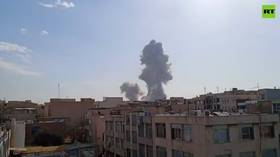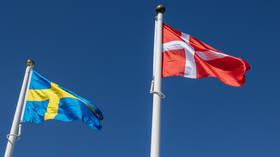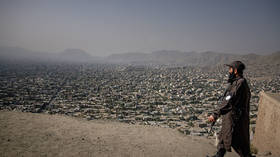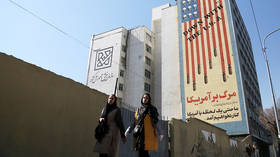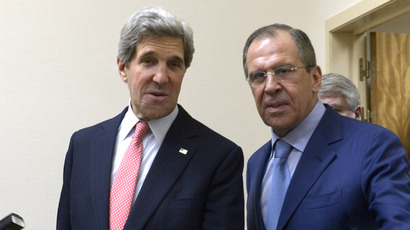Prelude to intervention? Damascus claims Al-Qaeda used chemical rocket in Aleppo attack

Damascus has claimed that Al-Qaeda-linked terrorists used a chemical rocket – possibly smuggled from Turkey – to attack Aleppo last month. But Western nations accused Damascus of using chemical weapons, and are mulling a military intervention.
Turkey, a nation openly hostile to the Syrian government, has
joined the chorus of voices saying that the Aleppo incident crosses
the so-called ‘red line.’
"We have been hearing allegations of the use of chemical weapons
for quite some time now and these new findings take things to
another level. They are very alarming," Turkish Foreign
Ministry spokesperson Levent Gumrukcu said on Friday.
Military experts and officials said a military-grade chemical
agent, most likely sarin, killed 26 people in the war-torn city in
northwestern Syria on March 19. Several countries, including
Israel, the UK, France and the US – all vocal critics of Syrian
President Bashar Assad – all claimed they had evidence that
chemical weapons were used in Syria.
US Defense Secretary Chuck Hagel is the latest top official to
allege with “some degree of varying confidence” that
chemical weapons were used by the Syrian army, citing an
intelligence assessment The White House was more cautious, saying
it sought more evidence.
Damascus denied that a chemical attack was carried out by the
Syrian army, blaming the rebels and Turkey for the incident:
“The rocket came from a placed controlled by the terrorist and
which is located close to the Turkish territory. One can assume
that the weapon came from Turkey,” Syrian Information Minister
Omran al-Zoabi alleged in an interview with Interfax news
agency.

The minister said that Syria is willing to invite weapons experts from Russia to investigate the incident, or another case of alleged use of chemical weapons in Homs in December. Syria has barred UN experts from travelling to Aleppo, citing security concerns. The planned UN investigation did not include experts from Russia and China, which prompted some to question the probe’s impartiality.
Two Syrian officials told AP on Friday that the Syrian military have no need of chemical weapons, saying that the accusations are similar to those the US made against Saddam Hussein’s Iraq. Washington justified the 2003 invasion that toppled the Iraqi dictator by claiming he had plans to use weapons of mass destruction against Europe – accusations that were later proved to be groundless.
Barack Obama said that the use of chemical weapons by the Syrian government would be a
“red line” for foreign military intervention. As the accusations mounted, some hawkish US politicians, including Senator John McCain (R-AZ), called on the White House to take action.
British Prime Minister David Cameron has echoed President Obama's words about the “red line” for foreign intervention, but said that it is “unlikely” that UK troops would be deployed for such an attack.

"But we need to go on gathering this evidence and also to send a very clear warning to the Syrian regime about these appalling actions," he said.
Countries like Israel previously voiced concern that Syria’s chemical weapons stockpiles could fall into the hands of terrorists if the Assad regime collapses; Tel Aviv has reportedly prepared to seize control of the arms by military force. On several occasions, the alleged use of chemical weapons was trumpeted by adversaries of Damascus as a justification for an invasion of the country.
Syrian rebels have said they are seeking to acquire chemical weapons. Last month, a militant commander from the Free Syrian Army (FSA) claimed in an interview with Al Arabiya that the rebels have agents in the ranks of the Syrian army who are ready to seize control of at least part of the chemical weapons stockpile.
Earlier, an FSA leader claimed his group has the components and knowhow to produce chemical weapons.


